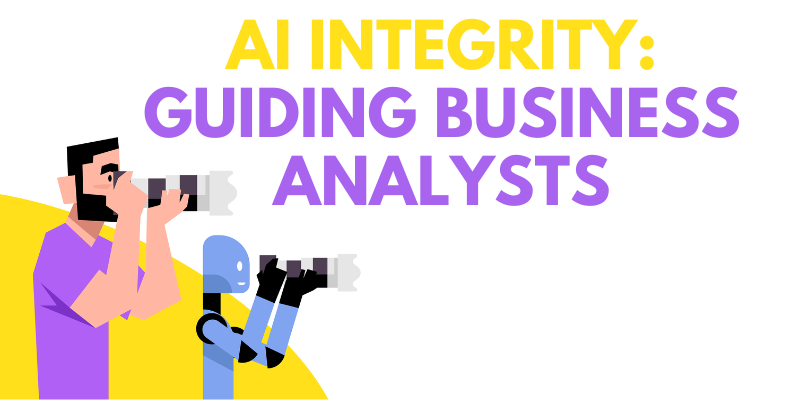In today’s digital age, artificial intelligence (AI) has become a driving force behind corporate operations and decision-making processes. Business analysts, who play a critical role in shaping these operations, must also ensure AI ethics are upheld. As AI systems become increasingly sophisticated, the ethical considerations surrounding their use become more complex. This blog will explore the intersection of business analysis and AI ethics, providing a comprehensive guide for business analysts to navigate this ethical landscape.
The Importance of AI Ethics in Business Analysis
Understanding AI Bias
Bias is one of the key ethical problems with AI. AI systems are educated on historical data, which might unintentionally perpetuate biases that exist in that data. Business analysts, including those pursuing an MBA Business Analytics In Chennai, must understand how these biases can impact decision-making and work to identify and rectify bias within AI systems.
Ensuring Transparency
Transparency is key in AI ethics. Business analysts should work with data scientists and developers to ensure that AI systems are transparent in their decision-making processes. This means providing clear explanations of how AI arrives at its conclusions.
Privacy and Data Security
Business analysts must be vigilant in protecting user privacy and data security. They must advocate for robust data protection measures and ensure that AI applications adhere to privacy regulations and best practices.
The Role of Business Analysts in Promoting AI Ethics
Collaborating with Cross-functional Teams
Business analysts, including those with an MBA In Business Analytics, often bridge the gap between technical and non-technical teams. They should actively collaborate with data scientists, legal experts, and decision-makers to embed ethical considerations into developing and deploying AI systems.
Conducting Ethical Impact Assessments
Business analysts can conduct ethical impact assessments to identify potential ethical risks associated with AI projects. These assessments help in proactively addressing ethical concerns before they escalate.
Advocating for Ethical AI Frameworks
Business analysts can advocate for adopting ethical AI frameworks within their organizations. These frameworks guide developing and deploying AI systems prioritising fairness, transparency, and accountability.
Staying Informed and Evolving Ethical Guidelines
Continuous Learning
The field of AI ethics is rapidly evolving. Business analysts should commit to continuous learning to stay updated on the latest ethical guidelines, regulations, and industry best practices.
Adapting to Changing Regulations
AI regulations and laws are changing worldwide. Business analysts must stay informed about these changes and ensure their organizations comply with the latest ethical standards.
Conclusion
usiness analysts, including those who have pursued their education at MBA Colleges In Chennai, are at the forefront of AI integration in organizations. Their role extends beyond data analysis and project management, encompassing a crucial responsibility for upholding AI ethics. By understanding bias, ensuring transparency, protecting privacy, collaborating with cross-functional teams, conducting ethical impact assessments, and advocating for ethical AI frameworks, business analysts can significantly impact their organizations and society. In this ever-changing landscape, a commitment to continuous learning and adaptation is essential to ensure AI is harnessed for the betterment of all. As business analysts navigate the complex world of AI ethics, they will play a pivotal role in shaping a more responsible and ethical AI-powered future..
